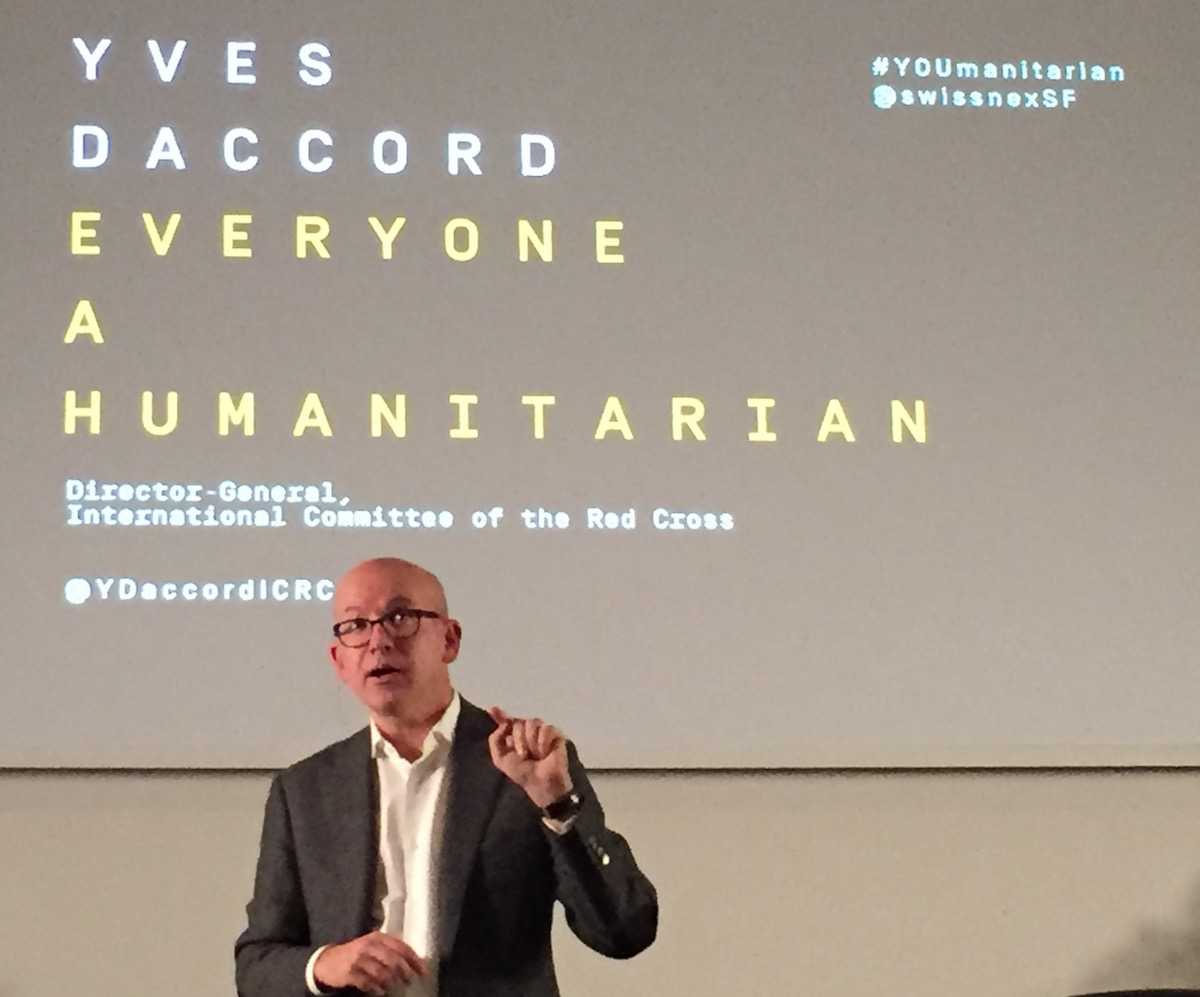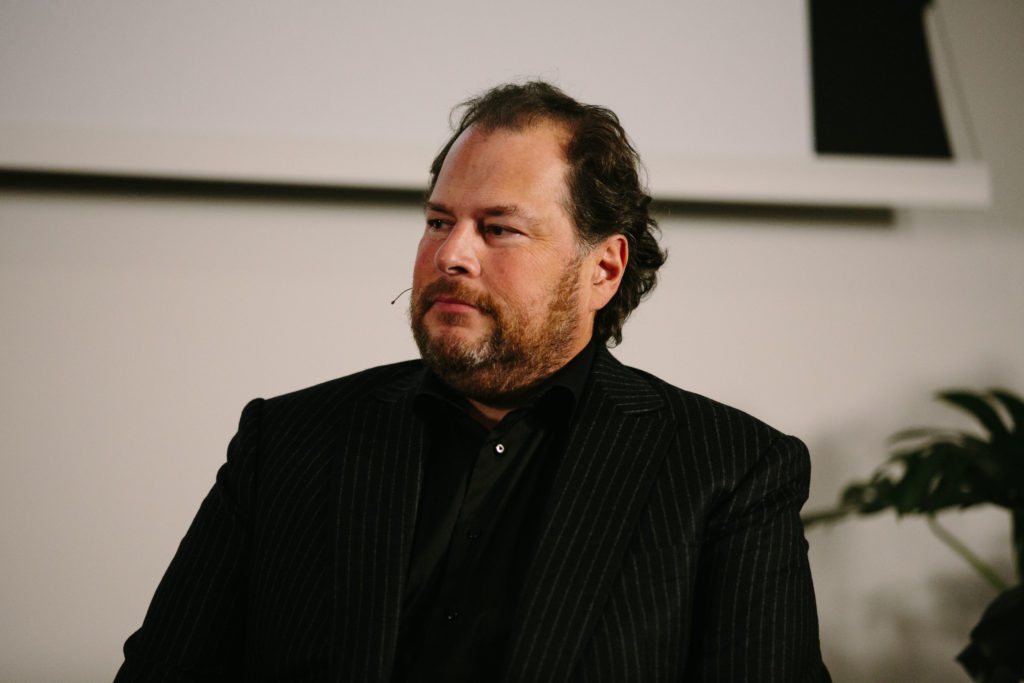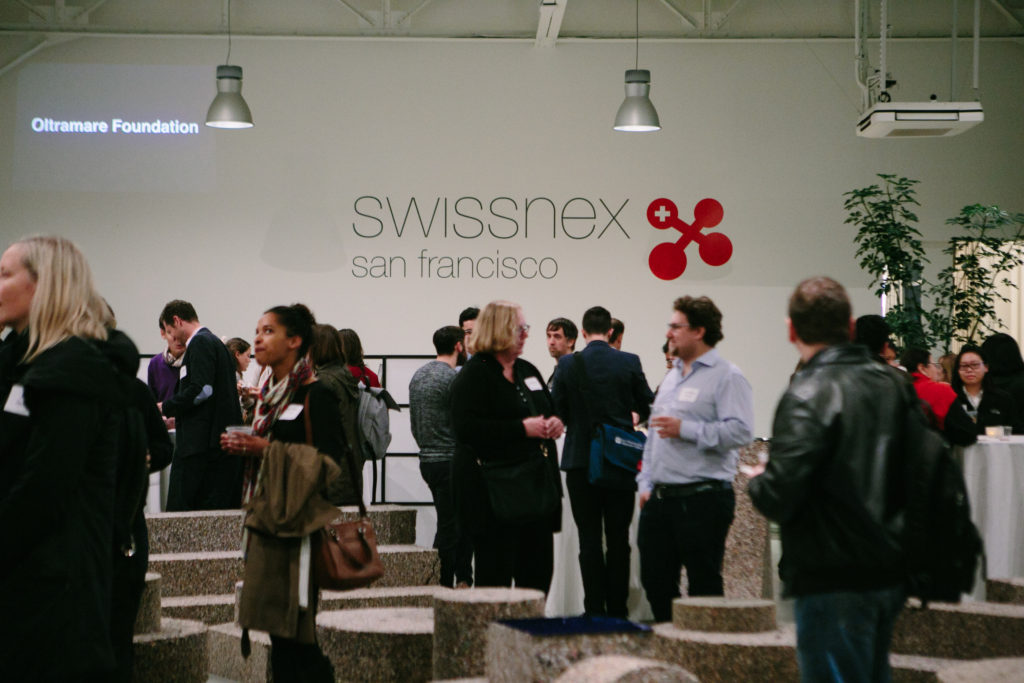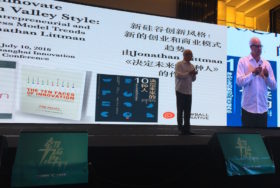
Disruption makes San Francisco’s startup culture tick, upending existing products or services with radically new technological solutions. But one night last week on a pier over San Francisco Bay, humanitarian and tech leaders joined forces to announce a different kind of startup: a collective mission to bring the power of entrepreneurship and innovation to the millions of people disrupted today by climate change, famine, and war.
“People who are attracted to this city get inspired by the energy,” said one of the panelists, Marc Benioff, Chairman and CEO of Salesforce. “One of the things that everyone in this room can do is [to] take our feeling that we do want to help – with deep compassion – and actually go and do something.”
The “Everyone a Humanitarian” launch was the first in a series of related events and projects scheduled in the coming months for swissnex’s sprawling Pier 17 location adjacent to the Exploratorium and near the Ferry Building, a tech hub designed to plug Switzerland’s innovation ecosystem into the Bay Area’s technical might, and to share the European nation’s deep experience in orchestrating large-scale humanitarian efforts.
The global reach of the event was on full display, the panel led not just by Benioff of Salesforce, arguably San Francisco’s leading philanthropic tech company, but by Yves Daccord, Director-General of the International Committee of the Red Cross, Kevin Barenblat, director of the non-profit tech accelerator Fast Forward and Clemantine Wamariya, a refugee and human rights advocate. The session was moderated by Katherine Maher, the executive director of Wikimedia. The focus: leverage the Bay Area’s entrepreneurial capacity and potential to combat a different form of disruption.

“Cultures, homes, and worlds are disrupted by war, poverty, climate change,” Daccord told the crowd, noting that an unprecedented refugee crisis and widespread economic disparity highlights the need for new models. Migrants and others experiencing “digital vulnerability” are starting to look at the international agency as a service provider, said Daccord, forcing them to adopt “radical adaptation” to keep citizens and refugees connected in hot spots like Syria, Somalia, Yemen, and Iraq, where energy and digital infrastructure are a fundamental need. The Red Cross, WHO, World Bank, UNICEF and other major agencies must forge technical partnerships with businesses and governments to create and maintain databases and new mobile fintech solutions for masses of people on the move.
Benjamin Bollmann, Head of Science Programs and University Affairs, along with Andrina Beuggert, the Mercator Fellow in International Affairs at swissnex, highlighted several prominent examples of local charitable efforts. Josette Melchor from the Gray Area Foundation for the Arts raised half a million dollars for victims of the tragic Oakland Ghost Ship warehouse fire with a rapid and effective crowdfunding campaign. Yasmin Green, the head of research and development at Jigsaw (formerly Google Ideas), is applying Google algorithms to identify thousands of potential ISIS recruits and dissuade them from violence through an anti-recruitment video advertising campaign.
Speakers and audience members commented on the Bay Area’s homelessness crisis. In San Francisco, tech workers step over displaced people struggling with chronic addiction, mental or physical health problems, long-term poverty, or tragedy. “Think about the other differently,” Clemantine Wamariya encouraged the audience, emphasizing the importance of putting “yourself in that person’s mind. There, that’s where the answer is.”
Benioff challenged corporations to do more. Salesforces’s 1-1-1 philanthropic model, where customers pledge one percent of their profits to support integrating philanthropy into their business practices, has had a multiplying humanitarian impact. The company has given more than $128 million in grants, along with community service and product donations. Benioff and his wife have given roughly a quarter billion to fund local children’s hospitals, and Benioff is one of several prominent corporate leaders collaborating on Gavin Newsom’s Project Homeless Connect, an initiative to provide services to people experiencing homelessness in San Francisco.

The next event in swissnex’s series is on January 28, 2017, a one-day, immersive learning festival on humanitarian action. Future events include Homes and Shelters, Digital Health, Humanitarian Diplomacy, and Information Management in Crisis Settings. There is enormous innovation capacity in the Bay Area’s tech sector, and the panel hoped to inspire passionate entrepreneurs to contribute to long-term solutions to the suffering around us. “Profits from digital enterprises need to profit humanity, not just investors,” said Daccord.
Benioff ended with a call to empathy – and action. Jointly tackling San Francisco’s own dire problems will drive the scale needed to go international. “If we create a culture of indifference and we aren’t able to solve some of our problems locally, then we won’t be able to help globally,” said Benioff. “Right here we have a lot to do, and we have to be an example of coming together. We have a very solvable problem.”


